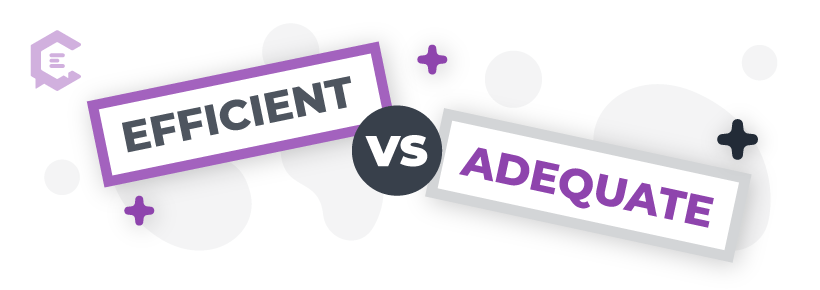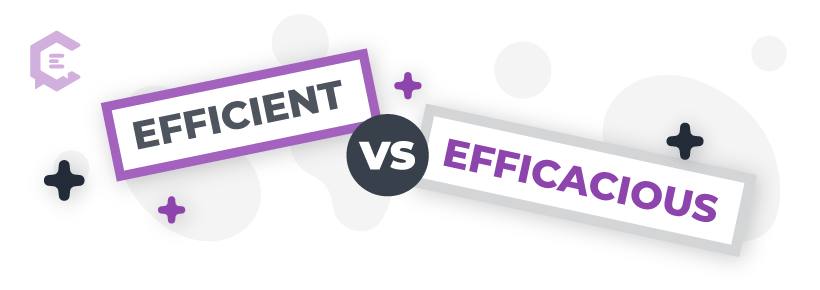As writers, we’re often told not to overuse adjectives. Cutting down on adjectives is one of the best ways to uncomplicate your writing. This doesn’t mean that we should stop using adjectives altogether; we just need to be more discerning with our adjective choices. Don’t just pull out your thesaurus and hope for the best. Knowing the subtle differences between adjectives will help you choose the one that most accurately conveys your meaning.
Take the word efficient, for example. Efficient is an adjective meaning performing or functioning in the best possible manner with the least waste of time and effort.
This word is tossed around constantly in so many capacities, along with other adjectives that at first glance seem to have similar meanings. Take note of these common mix-ups:
Efficient vs. Effective
These two words work in similar contexts, but they aren’t interchangeable. Effective means producing the intended or expected result. Essentially, something that is effective gets the job done. However, something that is efficient not only gets the job done, but it also gets it done in the best and least wasteful way.
Example: Driving was an effective means of getting to class, but walking would have been more efficient because of the lack of parking.
Efficient vs. Sufficient
Like all words that have similar sounds, these two can be confused. However, they aren’t all that similar. Sufficient means adequate for the purpose.
Example: Don’t upgrade to the faster internet; the speed we have is sufficient.
Sufficient: it’s enough. It works, but it doesn’t necessarily function in the best possible manner. That’s where the difference between sufficient and efficient lies.
Example: The internet speed we have may be sufficient, but I could be much more efficient if it didn’t take 10 minutes to watch a 3-minute video.
Efficient vs. Adequate
There is a reason that the word adequate appears in the definition of sufficient. Adequate means as good as necessary for some requirement or purpose. Again, it is enough to get the job done. It often has the connotation of being just enough.
Example: The results of the recipe were adequate to feed our family, but we didn’t have any leftovers.
Efficient, on the other hand, means that something gets the job done in the best possible manner with the least waste of time and effort.
Example: Tripling one recipe was more efficient than trying to make multiple dishes for the large crowd.
Efficient vs. Efficacious
Efficacious probably isn’t as commonly used as other words on this list, but it’s worth mentioning because of one distinct difference in its meaning. Efficacious means capable of having the desired result or effect. The key phrase here is capable of. It could have the desired effect but requires ideal conditions.
Example: Vitamins are efficacious in boosting the immune system, but they don’t always prevent sickness.
The important thing to note in the definition of efficient is the phrase with the least waste. Something efficient also has the desired effect but specifically does so without wasting energy or resources.
Example: The Dewey Decimal System provides libraries with an efficient way to organize and find books.
Tired of correcting word mix-ups? Don’t fret. We’ve got your back. Speak with a content strategist today about our managed content creation.






